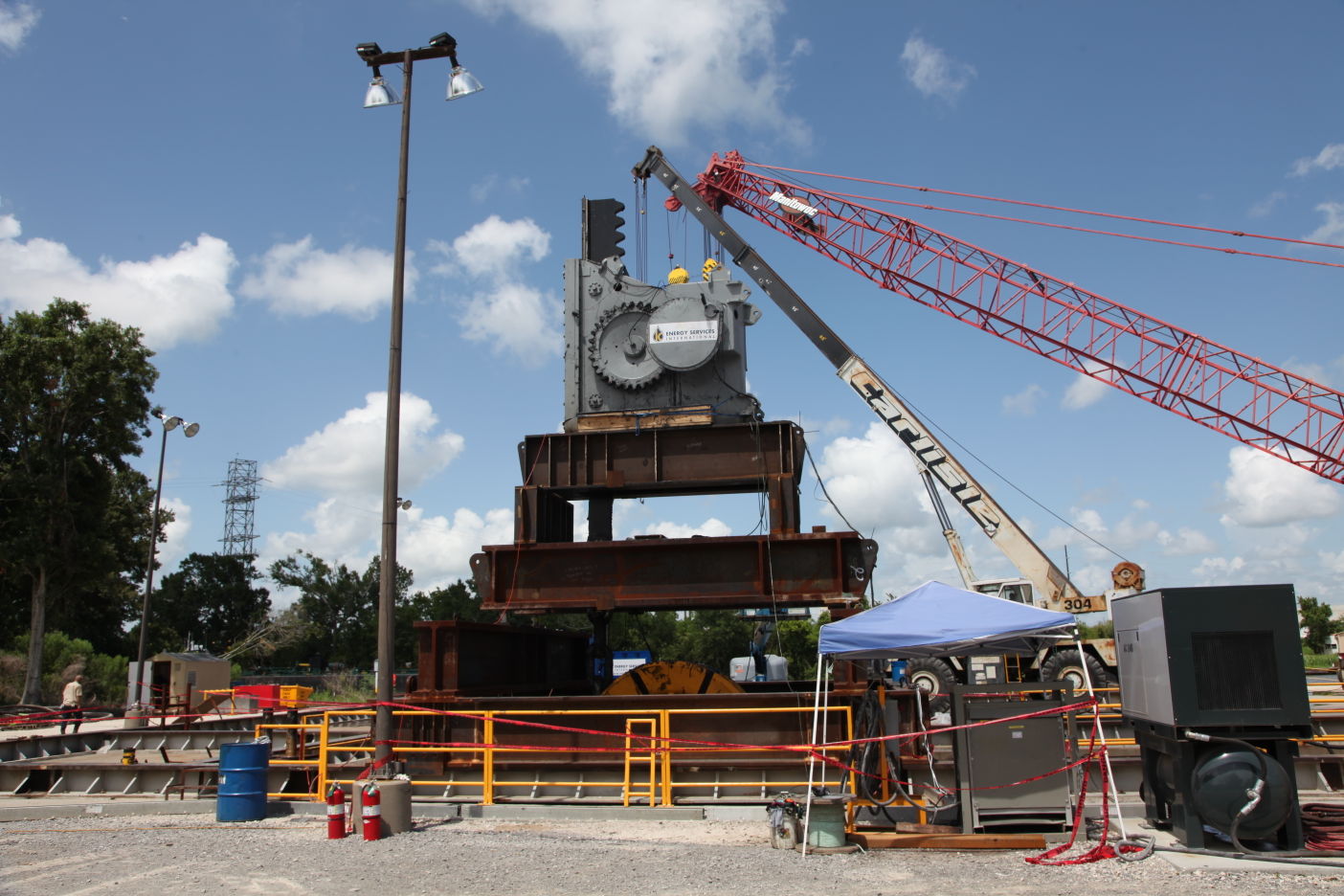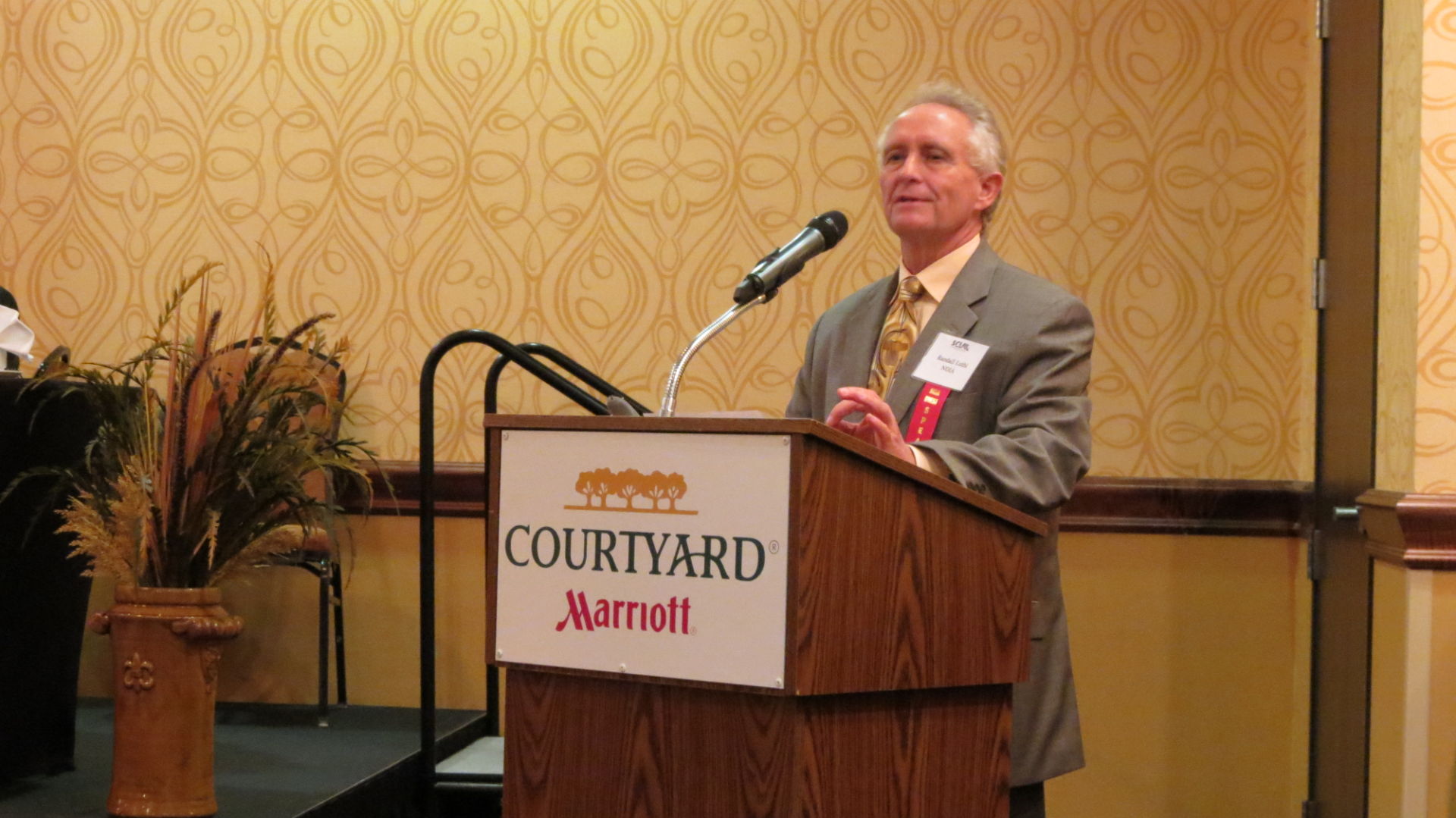
Remembering Allen Danos Jr. Oil and Gas icon remembered for ingenuity, philanthropy
February 3, 2015
Oil and Gas: Oil States launches big equipment test effort
February 3, 2015In the face of low oil barrel prices amidst ongoing criticism of the industry as a whole, the South Central Industrial Association invited someone who fights in its corner in our nation’s capitol to speak at January’s monthly luncheon.
Randall Luthi serves as president of the National Ocean Industries Association, an organization comprised of more than 330 members – with SCIA being one of them – that aims to seek further access and exploration for America’s oil and gas industry by lobbying policymakers.
Cracking jokes about the ineffectiveness of congress – even lightheartedly comparing its popularity to hipsters and Honey Boo Boo – Luthi demonstrated Jan. 20 at the Courtyard by Marriot in Houma that lobbyists are even more disliked than all three, according to national polls.
“People involved in the oil and gas industry are not particularly popular nationwide. But when you don’t think you’re very popular,” Luthi said to hundreds of local industry leaders, “just think of the oil and gas lobbyists. We’re far less popular than you are.”
Luthi said the United States is currently at a crossroads in regard to the future of its oil and gas production.
According to data presented by Luthi, the United States supplied 84 percent of its energy needs in 2013, its highest percent since 1987. That, coming off America having all-time low percentages in that category just eight years prior, Luthi said.
Despite America becoming more and more of a world power in the producer of oil, Luthi said “we’ve got to get past the rhetoric” that comes from groups fighting the production of American energy.
“There are many, not only in [Washington,] D.C., but in this nation, that think it’s important that we not only lessen our viability on the traditional sources, particularly fossil fuels, but they’re actually advocating that we give up the use all together,” said NOIA’s president.
Luthi said coal – not an industry we in the Bayou Region enjoy – has the biggest target on its back, however oil and natural gas are within the sights of those groups, he added.
“Hydraulic fracturing is a long-used, well-known method for being able to open up more oil and gas,” he explained. “It’s essentially environmentally benign. I can tell you when you get outside oil and gas types, and I get the opportunity to do that, most people don’t know much about oil and gas. Frankly, most people think gas comes from a gas station. Most people don’t know how it’s produced. But when you ask them what do they know, they’ve heard of hydraulic fracturing. They’ve heard of fracking. They can’t tell you what it is, but they know it is bad. So that gives you an idea of how good that PR machine is against hydraulic fracturing.”
Like coal, fracking isn’t a money maker in the Bayou Region, however, he has also seen some of the anti-industry groups to come after seismic testing in offshore enterprises despite saying that there is no scientific proof that these endeavors are dangerous.
“There has not been a documented case of a marine mammal being injured from seismic [activity]. Part of that is the case because the industry is regulated very carefully,” Luthi said. “ … It’s an interesting attack. It’s an interesting thing that we need to know about and we need to be able to stick by our guns and say, ‘No. Scientifically you’re wrong. You’re wrong. This is able to be done safely. It is done safely each and every day.’”
As his discussion went on, Luthi couldn’t ignore the “elephant in the room,” which is the current low price of oil at about $50 per gallon.
“Our best guess is some of our members are telling us that over the deepwater projects, there will be a slowdown, but deepwater projects are long term. Most companies are in it for the long, long haul. A lot of big companies have a lot of capitol, and they’re able to wait this out and see what happens. You’re seeing a lot more of an effect on [drilling in] shallow waters and [fracking] on shale plays,” he explained.
SCIA Executive Director Jane Arnette, who invited Luthi to speak, said she expects the local industry to be resilient.
“Certainly, as industry professionals, we have seen a downturn before. We have encountered hurricanes. We have encountered the oil spill. And personally believe that we’re very resilient, and we always bounce back. Can we forecast what’s going to happen? No, we can’t. We can only adjust to our environment, and no one really knows,” Arnette said.
Luthi said the Energy Information Administration predicts that oil prices will rise to $60 or $70 dollars per barrel by this time next year, however he admits that predictions aren’t always accurate.
That’s a big deal for an industry where more than 2,400 companies from 47 states contribute goods or services to the Gulf of Mexico offshore base.
And advocates like Luthi will continue fighting for those business deals and so much more in Washington, D.C.
“We have the responsibility that when we do our operations, we do it the best we know how, we do it the safest way we know how and we do it with the least amount of environmental harm. That is the standard. That is what we do. That is what we need to keep reminding ourselves,” Luthi said.
National Ocean Industries Association President Randall Luthi reassured local industry leaders at last month’s SCIA luncheon at the Courtyard by Marriot in Houma that the NOIA will continue fighting in Washington, D.C. for the oil and gas industry.












